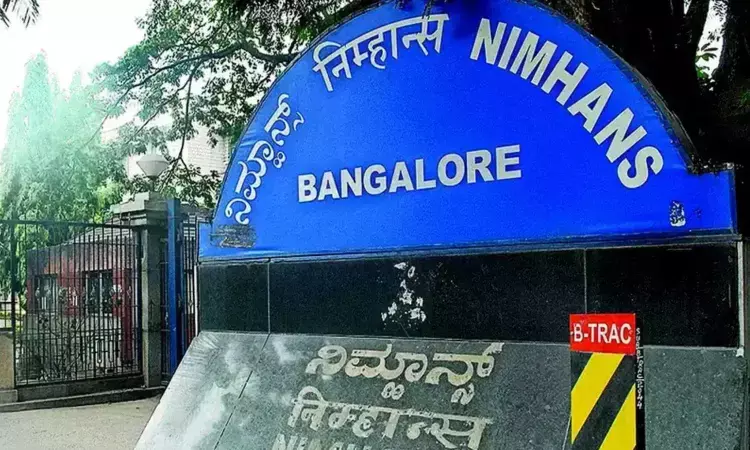- Home
- Medical news & Guidelines
- Anesthesiology
- Cardiology and CTVS
- Critical Care
- Dentistry
- Dermatology
- Diabetes and Endocrinology
- ENT
- Gastroenterology
- Medicine
- Nephrology
- Neurology
- Obstretics-Gynaecology
- Oncology
- Ophthalmology
- Orthopaedics
- Pediatrics-Neonatology
- Psychiatry
- Pulmonology
- Radiology
- Surgery
- Urology
- Laboratory Medicine
- Diet
- Nursing
- Paramedical
- Physiotherapy
- Health news
- Fact Check
- Bone Health Fact Check
- Brain Health Fact Check
- Cancer Related Fact Check
- Child Care Fact Check
- Dental and oral health fact check
- Diabetes and metabolic health fact check
- Diet and Nutrition Fact Check
- Eye and ENT Care Fact Check
- Fitness fact check
- Gut health fact check
- Heart health fact check
- Kidney health fact check
- Medical education fact check
- Men's health fact check
- Respiratory fact check
- Skin and hair care fact check
- Vaccine and Immunization fact check
- Women's health fact check
- AYUSH
- State News
- Andaman and Nicobar Islands
- Andhra Pradesh
- Arunachal Pradesh
- Assam
- Bihar
- Chandigarh
- Chattisgarh
- Dadra and Nagar Haveli
- Daman and Diu
- Delhi
- Goa
- Gujarat
- Haryana
- Himachal Pradesh
- Jammu & Kashmir
- Jharkhand
- Karnataka
- Kerala
- Ladakh
- Lakshadweep
- Madhya Pradesh
- Maharashtra
- Manipur
- Meghalaya
- Mizoram
- Nagaland
- Odisha
- Puducherry
- Punjab
- Rajasthan
- Sikkim
- Tamil Nadu
- Telangana
- Tripura
- Uttar Pradesh
- Uttrakhand
- West Bengal
- Medical Education
- Industry
NIMHANS launches Dementia and Geriatric Mental Health Programme

NIMHANS Launches Home-Based Psychiatry and Dementia Support
Bengaluru: The NIMHANS (National Institute of Mental Health and Neurosciences) has announced two pioneering initiatives aimed at bridging the critical gap in geriatric mental health care — the NIMHANS–Vayomanasa Sanjeevani (VMS) Gruha, a community-based psychiatric outreach programme, and a Post-Diagnostic Dementia Care Centre in partnership with Dementia India Alliance (DIA).
The announcement coincided with World Alzheimer’s Day, observed annually on September 21.
Psychiatric Care at the Doorstep: NIMHANS–VMS Gruha
The VMS Gruha programme is set to deliver psychiatric services directly to the homes of senior citizens, offering a critical lifeline for those who are unable to travel to hospitals or clinics.
While services like Tele-MANAS have expanded access to mental health care remotely, they often fail to reach older adults. The new initiative bridges this gap with a mobile mental health team comprising psychiatrists, psychologists, nurses, and trained volunteers.
These teams will conduct home visits, offer follow-up assessments, provide counselling, and facilitate assisted tele-psychiatry consultations. While the core team delivers these services, trained volunteers will focus on raising awareness and offering basic mental health support. Additionally, NIMHANS trainees will be sensitized to the specific needs of older adults.
Also Read: NIMHANS launches second phase of Mental Health Survey in Kerala
Speaking to the Hindu, P.T. Sivakumar, professor of Psychiatry and head of Geriatric Psychiatry at NIMHANS, said that the programme, funded through philanthropic contributions of ₹1.2 crore each from eminent psychiatrists, who were formerly with NIMHANS - Padma Shri awardee C.R. Chandrashekar and Srikala Bharath, currently based in Australia - will be piloted in Bengaluru South Corporation, which has an estimated 3 – 4 lakh elderly residents. Services will extend to old-age homes and destitute elders, he said.
“The idea is to bridge the treatment gap in geriatric mental health and ensure continuity of care. We want to create a sustainable model that can be scaled up across the city with government and community participation. For more information about this service, people can call 99004 18922 during working hours,” Dr Sivakumar said, reports the Hindu.
Supporting Life After Diagnosis: Post-Diagnostic Dementia Care Centre
Complementing the outreach programme is the Post-Diagnostic Dementia Care Centre, an initiative developed in collaboration with the Dementia India Alliance (DIA) and supported through Corporate Social Responsibility (CSR) funding. The centre aims to fill a critical gap in dementia care — the period immediately following diagnosis, where most families are left to navigate the complex journey alone.
Notably, the centre will provide modest financial assistance to economically disadvantaged families to help alleviate caregiving costs. In addition, it will connect families to welfare schemes, including pensions and disability certification. Online caregiver support groups and volunteer networks will also be established to broaden their outreach. Work on the initiative has already commenced, and the centre is expected to be fully operational within two months, according to the doctor.
“Dementia care in India is largely left to families, with little structured support. Early, structured post-diagnostic interventions improve quality of life and delay institutionalisation,” said Ramani Sundaram, DIA executive director, reports the Hindu.
Dr Radha S. Murthy, President of DIA, added that the centre is expected to benefit over 3,000 families annually and aims to become self-sustaining through philanthropy and public-private partnerships.
A growing challenge in Elderly Care
With India’s elderly population projected to reach 340 million by 2050, and over 5.3 million already living with dementia since 2020, the need for accessible and structured mental health care has never been more urgent. Alarmingly, over 90% of older adults with mental health conditions remain untreated, primarily due to stigma, lack of awareness, and inadequate access to services.
Also Read: NIMHANS digitises largest mental health records dating from 1890s
Dr. Sivakumar emphasized that these initiatives are not just about clinical care, but also about promoting healthy aging, reducing loneliness, and creating networks of community participation. He added that the time has come to care for those who once cared for us.
Both programmes are closely aligned with the World Health Organisation’s Decade of Healthy Ageing (2021–2030), which calls for inclusive, community-based, and sustainable care models that respect the dignity and rights of older persons.


